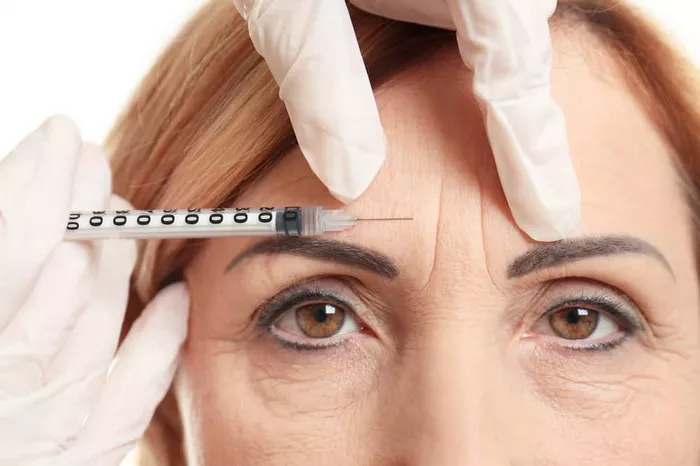Collagen is often referred to as the “building block” of our skin, providing it with the structural support and elasticity that keeps it looking youthful and firm. As we age, collagen production naturally decreases, leading to common signs of aging such as wrinkles, fine lines, and sagging skin. This has led to the popularity of collagen supplementation in the quest for a more youthful appearance. However, not all collagen is the same, and understanding which type of collagen is best for anti-aging can be crucial in achieving the desired results. In this comprehensive guide, we will explore the different types of collagen, their benefits, and how to choose the right one to support your anti-aging goals.
Understanding Collagen
Collagen is the most abundant protein in the human body and plays a vital role in maintaining the health and integrity of various tissues, including skin, bones, tendons, and cartilage. It provides strength and structure to these tissues and is responsible for their elasticity.
There are several types of collagen in the body, but the three primary types are:
Type I Collagen: This is the most abundant type of collagen in the body and is found in the skin, tendons, bones, and other connective tissues. Type I collagen provides strength and firmness to the skin.
Type II Collagen: Type II collagen is primarily found in cartilage, making it essential for joint health. It provides cushioning and support to the joints.
Type III Collagen: Type III collagen is often found alongside Type I collagen and is abundant in reticular fibers, which are essential for the structural framework of various organs.
When it comes to anti-aging, the focus is primarily on Type I collagen due to its prominent role in maintaining youthful skin.
The Role of Collagen in Anti-Aging
Collagen is a critical component of the skin’s dermis, the layer responsible for its structure and elasticity. As we age, the production of Type I collagen decreases, leading to several skin-related issues:
Wrinkles and Fine Lines: Reduced collagen levels result in a loss of skin elasticity, leading to the formation of wrinkles and fine lines.
Sagging Skin: Collagen depletion can cause the skin to lose its firmness and sag, contributing to an aged appearance.
Thinning Skin: Collagen also contributes to the thickness of the skin. As collagen levels decline, the skin becomes thinner and more susceptible to damage.
Decreased Hydration: Collagen helps the skin retain moisture. A decrease in collagen can lead to dry and dehydrated skin.
Reduced Wound Healing: Collagen is crucial for wound healing and skin repair. Lower collagen levels can slow down the skin’s ability to heal and recover from damage.
Choosing the Best Type of Collagen for Anti-Aging
With various collagen supplements and products available, it’s essential to know which type of collagen is best for anti-aging:
Type I Collagen: When it comes to anti-aging benefits for the skin, Type I collagen is the most effective. Look for collagen supplements or skincare products that specifically mention Type I collagen as their primary ingredient.
Hydrolyzed Collagen: Hydrolyzed collagen, also known as collagen peptides, is a form of collagen that has undergone a process to break it down into smaller, more easily absorbed peptides. This form of collagen is highly recommended for anti-aging purposes because it is better absorbed by the body and can more effectively reach the skin.
Marine Collagen: Marine collagen, sourced from fish, is often considered a superior choice for skin health due to its small particle size and bioavailability. It is predominantly Type I collagen and can be highly effective in promoting skin elasticity and reducing wrinkles.
Collagen with Added Nutrients: Some collagen supplements are enriched with vitamins and minerals that further support skin health. Look for collagen products that include ingredients like vitamin C, which plays a key role in collagen synthesis, and antioxidants to protect the skin from oxidative damage.
Consult a Healthcare Professional: Before starting any collagen supplementation regimen, it is advisable to consult with a healthcare professional or dermatologist. They can provide personalized recommendations based on your skin type, concerns, and overall health.
Incorporating Collagen into Your Anti-Aging Routine
To maximize the anti-aging benefits of collagen, consider the following tips:
Consistency is Key: Collagen supplementation is most effective when taken consistently. Follow the recommended dosage on the product label.
Combine with a Healthy Lifestyle: Anti-aging is not solely reliant on collagen supplements. A balanced diet, hydration, sun protection, and a skincare regimen that includes cleansers, moisturizers, and sunscreen are essential components of an anti-aging routine.
Be Patient: Collagen takes time to work, and results may not be immediately noticeable. It can take several weeks to months of consistent use to see significant improvements in skin elasticity and texture.
Monitor Your Skin: Pay attention to changes in your skin’s appearance and texture. Keep track of any improvements or concerns and adjust your skincare routine accordingly.
Conclusion
Collagen, particularly Type I collagen, plays a crucial role in maintaining youthful skin by supporting its structure and elasticity. When choosing a collagen supplement or skincare product for anti-aging purposes, prioritize Type I collagen, hydrolyzed collagen, and marine collagen for their effectiveness and bioavailability. To achieve the best results, combine collagen supplementation with a holistic anti-aging skincare routine, healthy lifestyle choices, and regular consultation with a healthcare professional or dermatologist to address specific concerns and goals.


